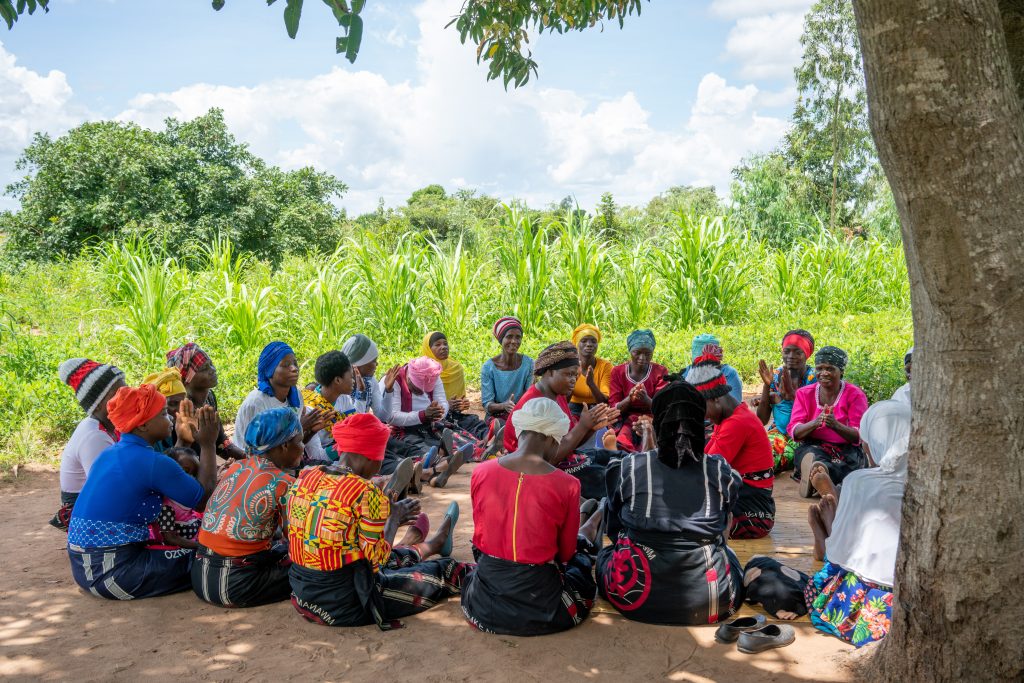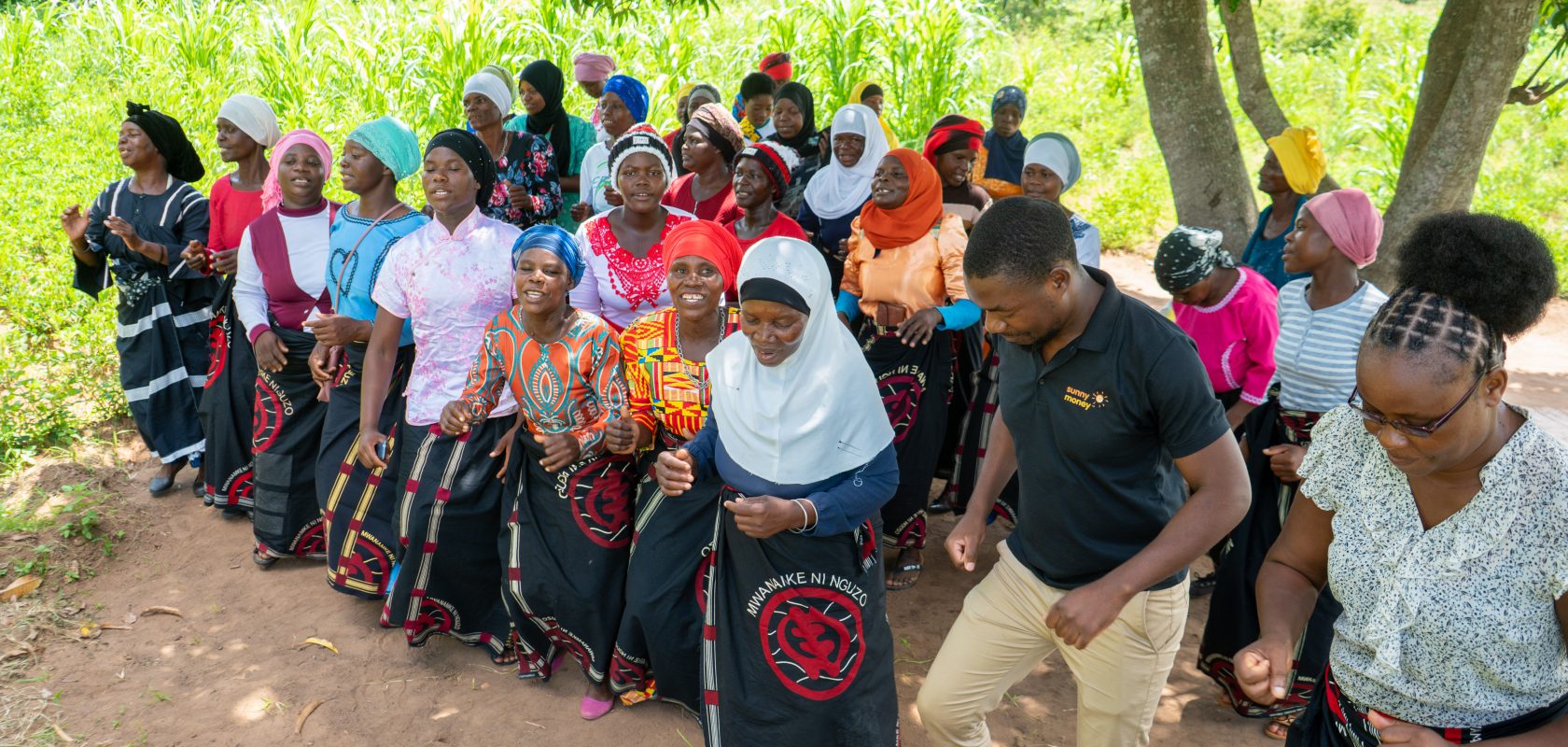“I think there is power when women come together. We share knowledge.” Margret Nkhata, 45, is quiet and chooses her words carefully. When she speaks, she goes straight to the point. “The goodness is that we know that women can run businesses. Besides, we come back with profits from the business, for both the group and members. So we see that it is beneficial for both the group and households, ” she continues.

Magret Nkhata, 45, is one of the women making up the Tikondane Mayi Wala group In Machinga, Malawi.
Margret is one of several women solar entrepreneurs who make up the Tikondane Mayi Wala group in Machinga, Malawi. The Mayi Walas are groups of women solar entrepreneurs set up by SolarAid’s social enterprise SunnyMoney. It has been shown that women, as trusted members of society, are vital in driving energy access in rural areas. Through combining tailor-made training, business support and accessible loans to groups of Mayi Walas, more rural families in Machinga are gaining access to clean, safe solar light.
As our team arrives on site to meet the groups of Mayi Walas, the singing and dancing starts immediately. It’s a celebration of the day, and a way of welcoming their visitors. But it’s also because this is a special day, the Tikondane Mayi Wala group is meeting with another group of solar entrepreneurs, the Chimwemwe Mayi Wala group. The groups are expressing their joy of being together. The power of togetherness is strengthening their business model, as well as supporting their duties outside of work.

The Chimwemwe group and the Tikondane Group of Mayi Walas meet together. The two groups are based only 500 meters from each other. Alex Mpenda and Mphatso Msewa from SunnyMoney dance and sing along. Photo: SolarAid/Chris Gagnon.
Sagurani Friday, who is one of the oldest members of the Chimwemwe Mayi Wala group says, “It is enjoyable because we share days for selling the business items. It is not one person who does all the travelling. Others do household chores while waiting for their turn the following day. For this reason, a group is good.” Sagurani’s colleague Patuma Awali agrees, “It is pleasing because we bring all the cash together. When the business is over, we collect the money together, we count together, determine profit and share the proceeds. This is very preferable compared to doing separate businesses. The exciting thing is that every day we use money from our personal businesses. In this way, the group business moves forward.”

Patuma Awali, 35, from Nyama in Machinga District Malawi. Photo: SolarAid/Chris Gagnon.
Mphatso Nsewa, the Mayi Wala Project Supervisor from SunnyMoney, confirms that there is a reason behind creating groups of entrepreneurs rather than working with the women individually, “We instruct them to follow what is happening in the group, because whenever people are in a group, togetherness is power. We teach them to make group contributions because they can do powerful business, unlike each person on her own.” She continues, “These women meet a lot of challenges. They lack money for village banking. This is a big challenge because in rural areas, women are underrated… they are considered as housekeepers, and for that reason, women remain backwards.”

The Mayi Walas groups Chimwemwe and Tikondane are carrying out a training session together. Photo: SolarAid/Chris Gagnon.
“In business associations there is power. We help one another. Everyone contributes little by little to make one thing. In the past I was selling tomatoes but I didn’t make any profit. In the group business I make a lot of profit,” says Margret Nkhata.
The business model of the Mayi Walas was set up to create sustainability and scale. Mphatso explains, “Mayi Walas project has already started bearing fruits. Women are developing because they have money to save in village banks. This happens because they are able to save the money they were spending on cheap torches and batteries. When they save money in the group they lend it to other people who pay back with interest. By the end of the year everyone receives enough money which helps them to do their dream businesses.”

SunnyMoney Project Supervisor, Mphatso Nsewa manages the Mayi Wala programme in Machinga. Here she is talking to Margret Nkhata.
SolarAid has now recruited 150 groups of Mayi Walas across Malawi.
